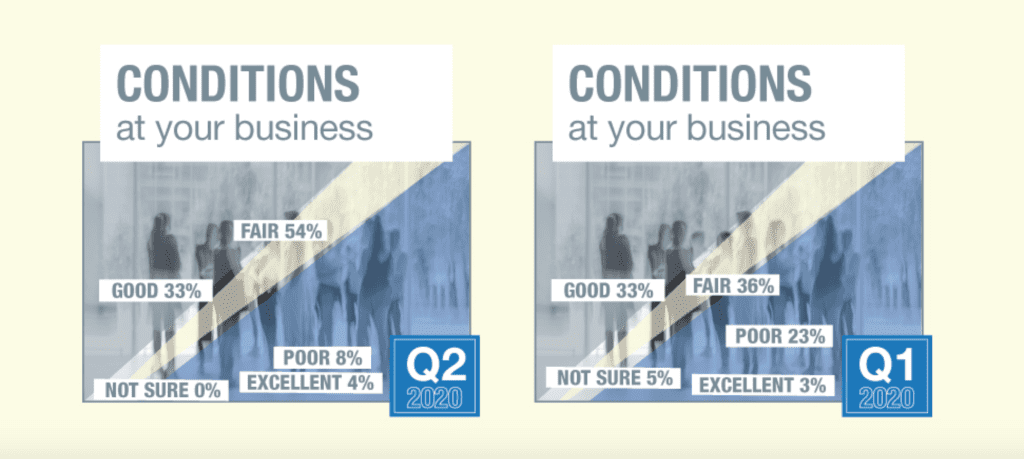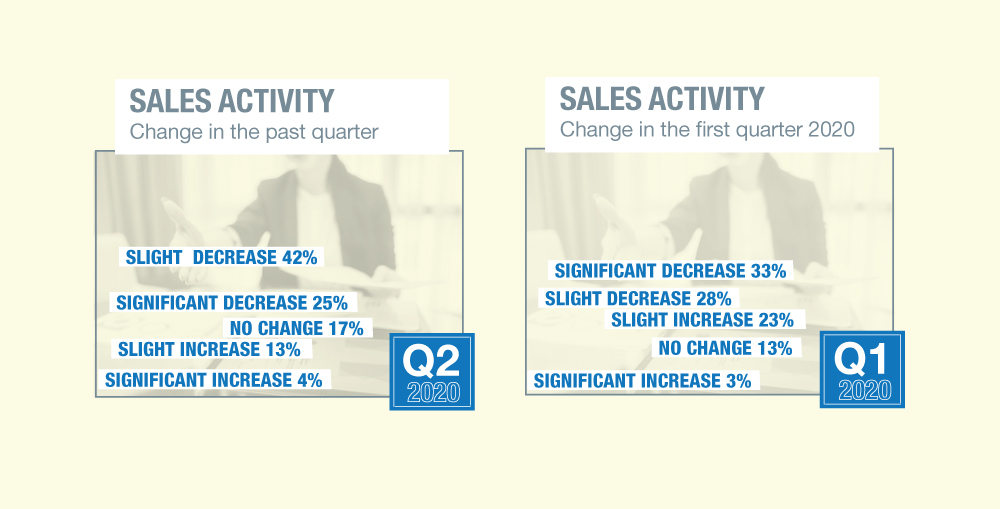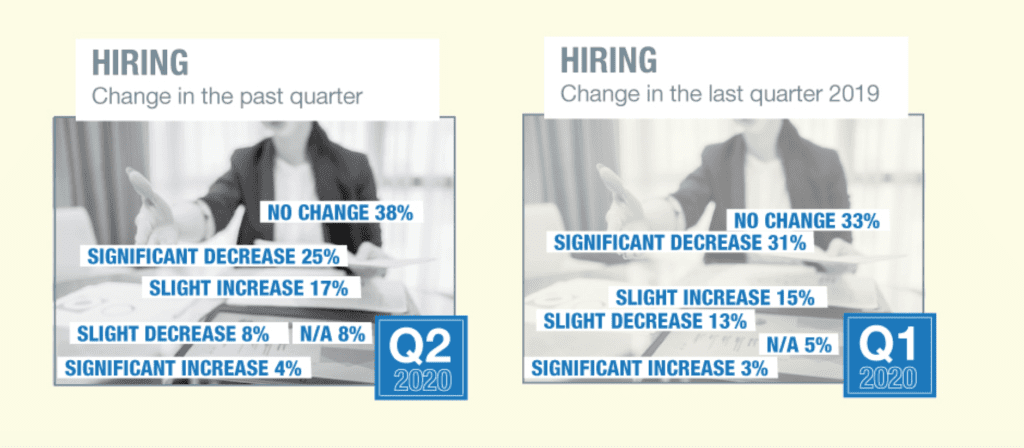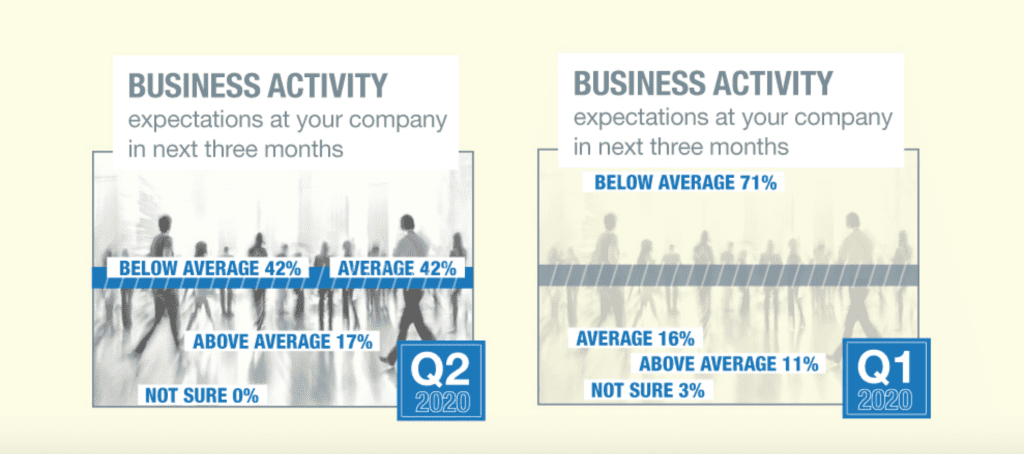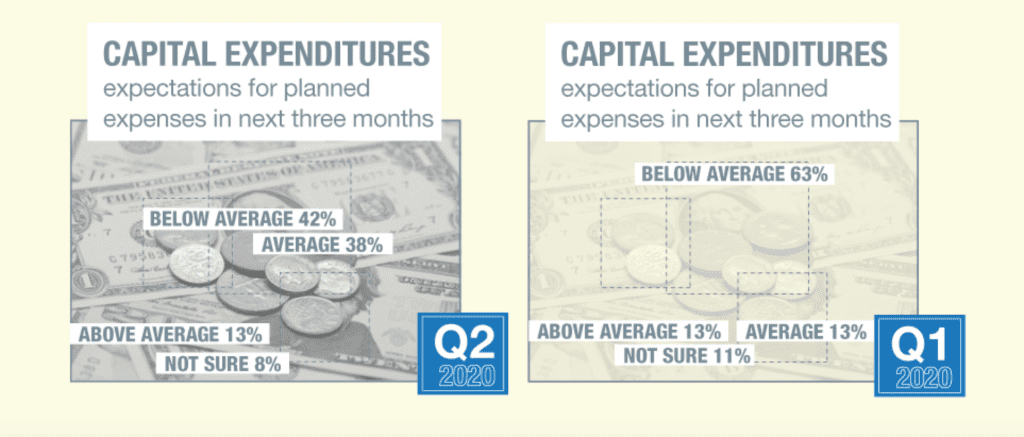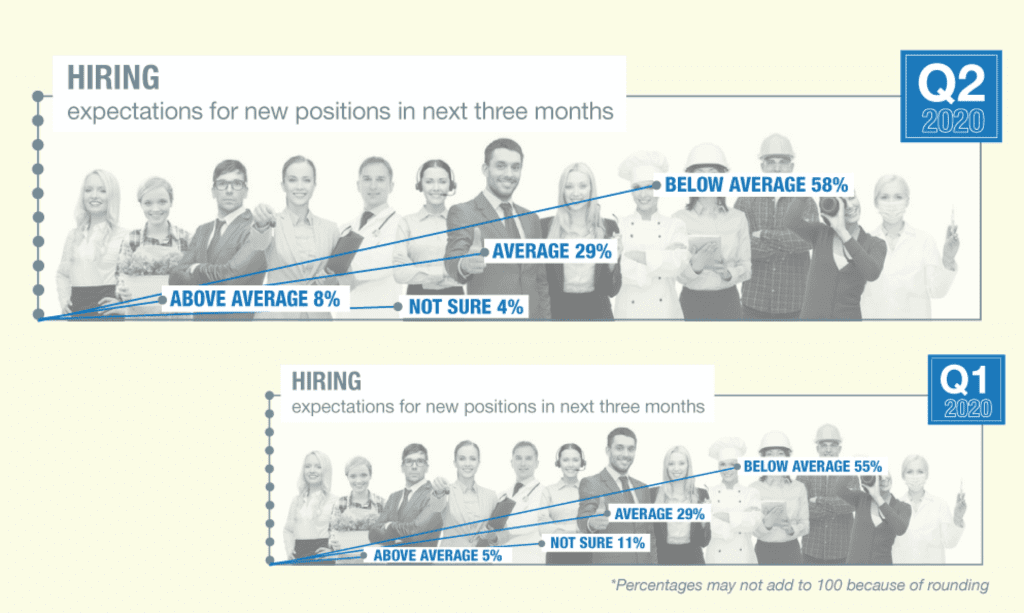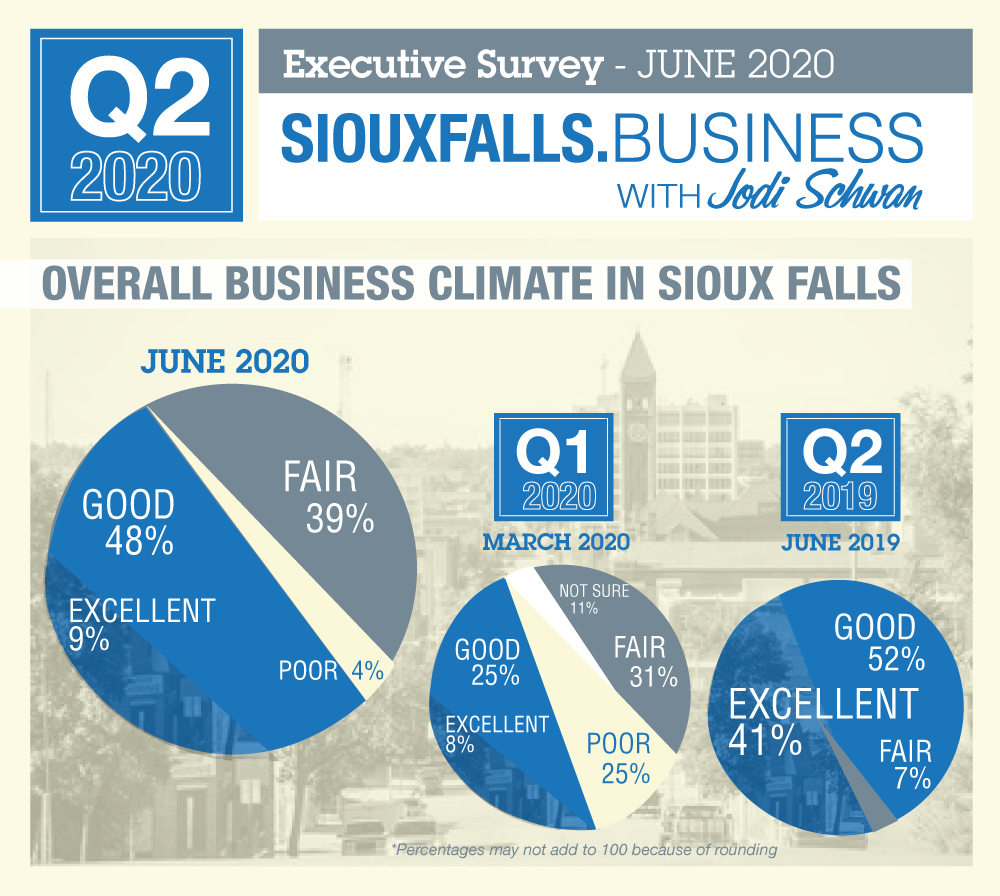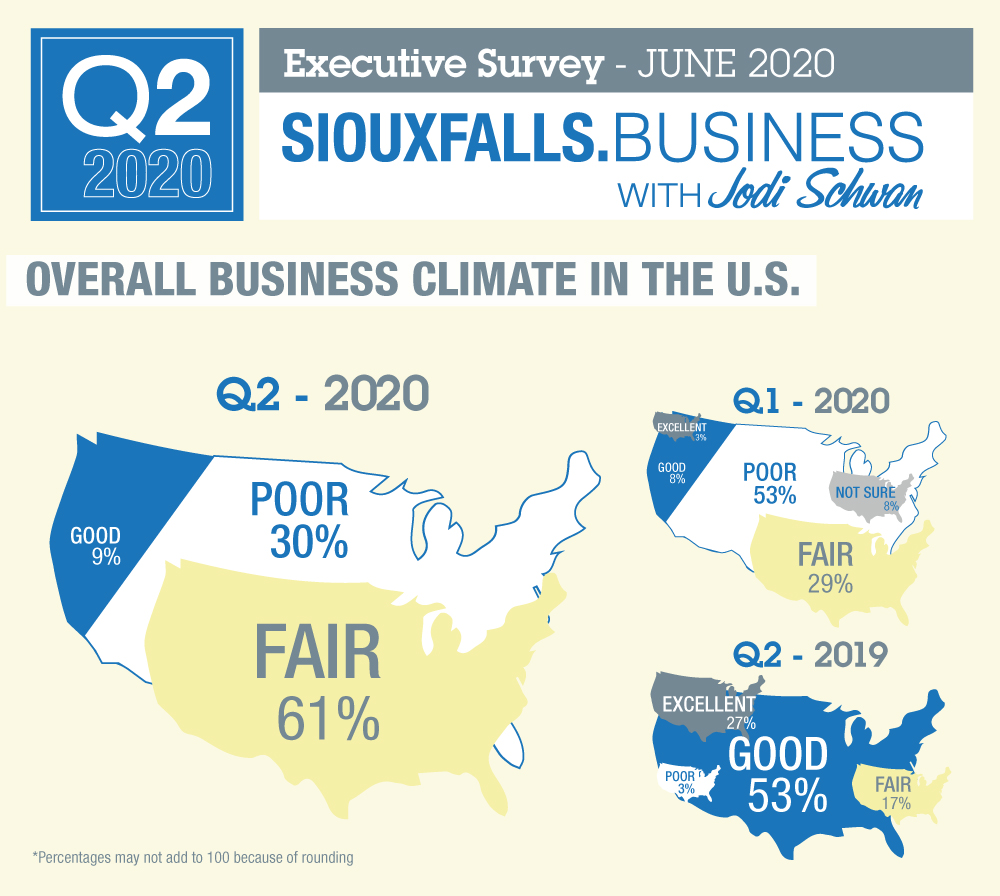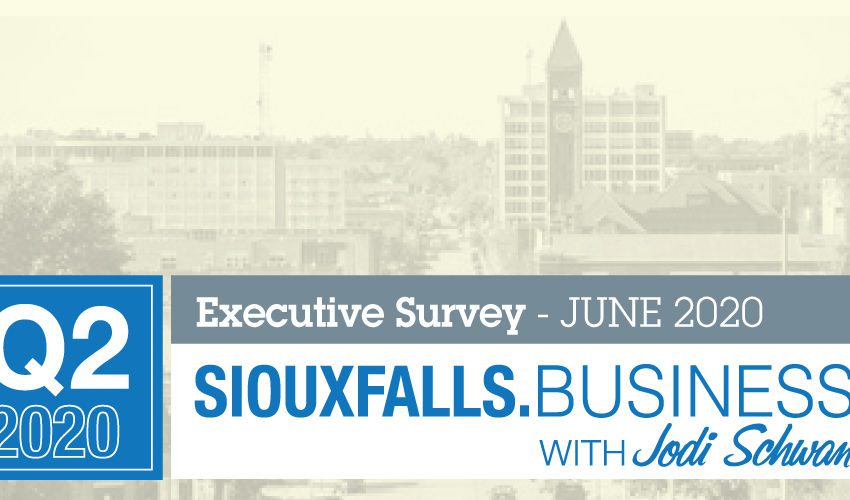Sioux Falls CEOs report more optimistic outlook for third quarter
July 13, 2020
Sioux Falls CEOs are feeling more positive about conditions at their business than they did last quarter.
That’s according to CEOs representing businesses of all sizes who responded to the quarterly SiouxFalls.Business CEO survey, done in conjunction with the Augustana Research Institute and conducted during the second half of June.
More than one-third said overall conditions at their business are good or excellent, which is similar to when they were surveyed in late March. The shift came from CEOs who considered conditions poor – that now sits at 8 percent compared with 23 percent three months ago, as more than half now say conditions are at least fair.
Looking back on the past quarter, two-thirds reported a drop in sales activity, and one-third reported a drop in hiring.
The results suggest the pandemic continues to adversely affect the regional economy, said Reynold Nesiba, professor of economics at Augustana University.
“There appears to be downward pressure on prices, and these likely result from decreases in sales. Hiring and capital investment are also falling. Expectations for the three key variables looking forward remain negative for business activity, capital expenditures and hiring. That’s all bad news,” he said.
“However, as someone looking closely at this survey for the first time, I found the results more positive than expected. There are companies reporting business conditions as excellent and expecting increases in these three key variables.”
What’s fueling those seemingly contrary sentiments and expectations? Nesiba points to the “enormous injection of federal dollars into South Dakota over the last few months.”
“These took the form of stimulus payments, the Payment Protection Program, extra unemployment benefits and farm payments. This injection totaled over $2.95 billion over the last few months,” he said.
As of May 22, South Dakotans received 416,952 stimulus payments worth $759 million, he added.
“This buoyed consumption expenditures and helped many meet payment commitments.”
As of June 20, the Paycheck Protection Program has injected $1.65 billion into the state’s economy in less than four months.
“To put that into perspective, South Dakota’s own source revenue for the entire fiscal year ending June 30, 2020, is about the same magnitude of $1.7 billion, but that is spread out over 12 months. This too provided substantial liquidity for firms — many facing declining revenues, others rising costs and some both. Unemployment insurance payments have also reached unprecedented levels.”
By the end of May, weekly unemployment benefits paid by the state totaled $38.1 million. The federal government added $90.3 million for costs related to the $600-per-week supplement.
“That’s a total of $128.4 million further assisting household incomes and spending,” Nesiba said. “In addition, as of June 22, South Dakota commodity producers received over $220 million through the Coronavirus Food Assistance Program. Livestock producers received $139.7 million.”
That stimulus could be figuring into CEOs’ expectations for the coming quarter. Nearly 60 percent said they expect average or above average business activity, up from 27 percent three months ago.
More than half expect to spend average or above average amounts on capital improvements in the next three months, up from 26 percent last quarter.
Hiring is projected to be less robust, with 58 percent projecting below-average hiring, compared with 55 percent in March.
CEOs are feeling more encouraged about the overall business climate in Sioux Falls, with 57 percent rating it good or excellent, up from 33 percent three months ago but still considerably weaker than a year ago, when 93 percent said it was good or excellent.
Their perceptions of the national business climate improved somewhat from three months ago, with 70 percent rating it good or fair, which is better than three months ago. One year ago, 80 percent said it was good or excellent.
“One threat going forward is that the federal government underestimates the ongoing crisis. If the federal government scales back assistance prematurely or if it fails to grant more funds or greater discretion for spending the funds already allocated to the state by the CARES Act, we could see a sharp reduction in incomes,” Nesiba said. “This will correspond with further decreases in business activity, investment and employment, and depress expectations going forward.”

